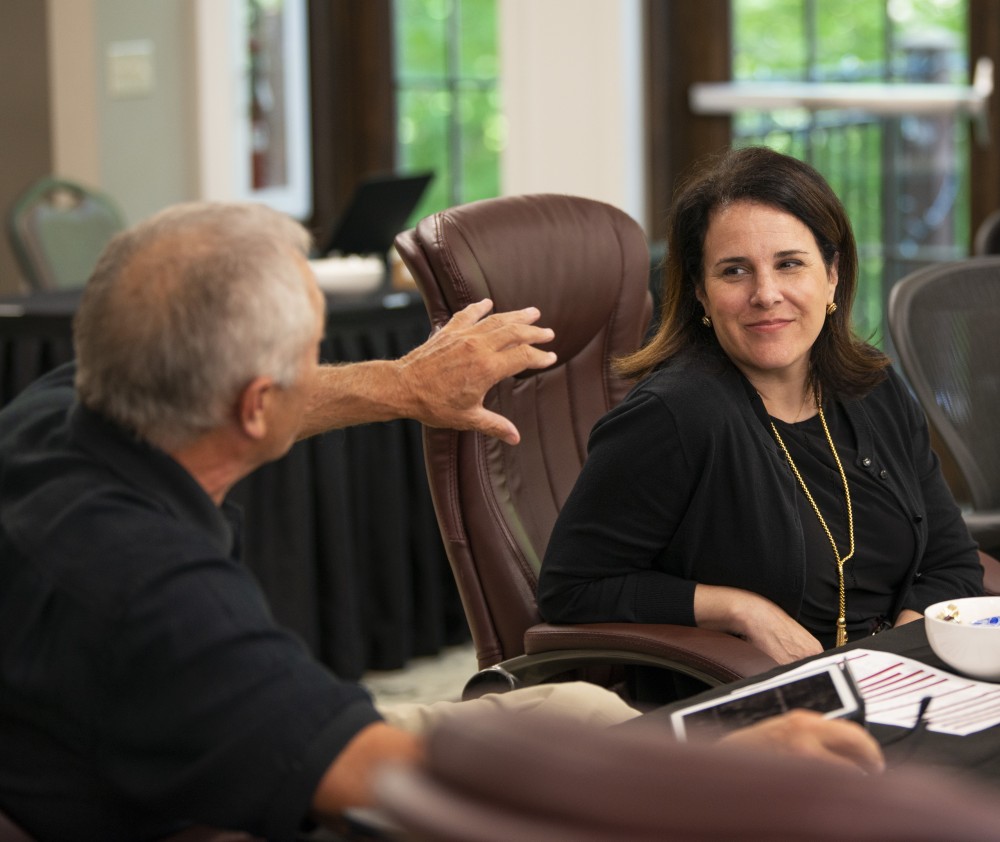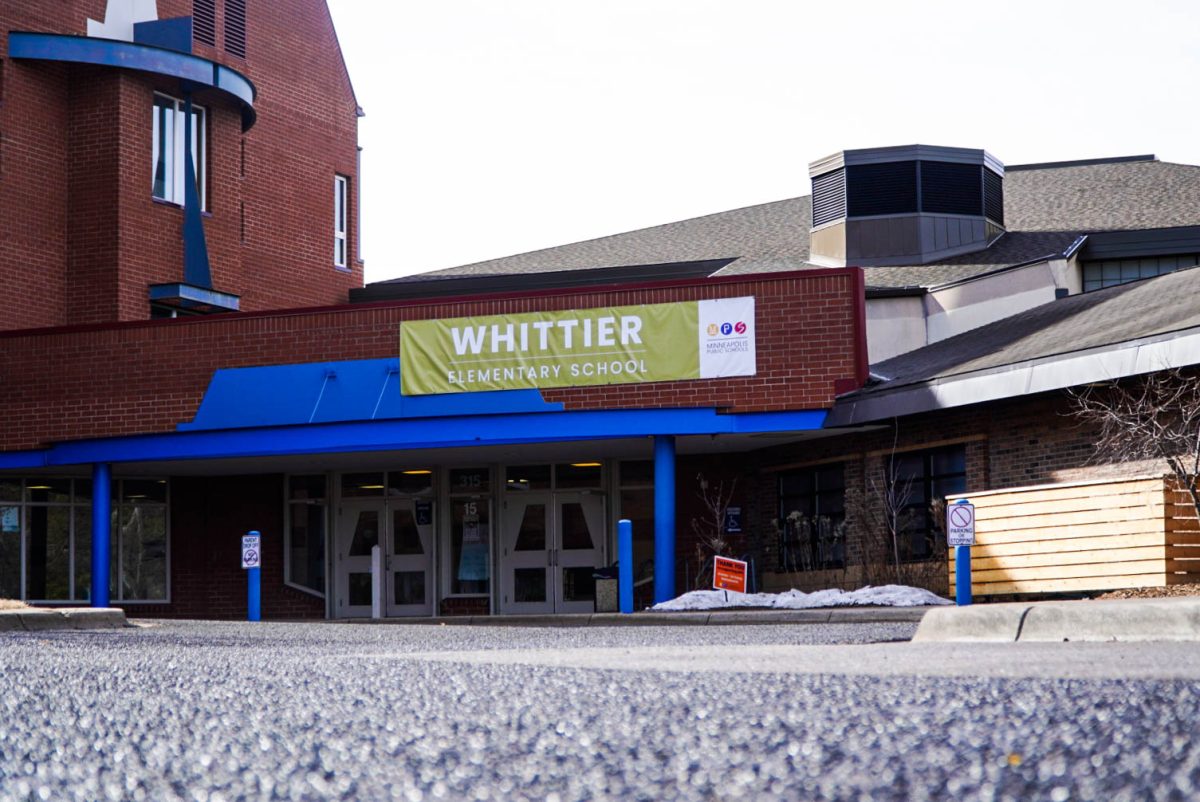Although the University of Minnesota Board of Regents and President Joan Gabel came to consensus on few things at a retreat in Faribault, Minnesota on Thursday and Friday, they agreed on two things: The weather was too nice to be tucked away in a conference room and it was all “great discussion.”
In a robust and sometimes “mushy” conversation about everything from tuition to campus climate, Gabel and the board examined a series of pillars to detail where regents feel Gabel should steer the University. Gabel would open the discussion before allowing regents to make their own comments in an attempt to guide the discourse, having varying degrees of success.
After lunch, Gabel had regents stretch their legs after hours of tabled discourse, breaking out into small groups to identify ideas for the upcoming academic year and goals for what will become the system’s next strategic plan.

Asking regents to picture a marble circling a funnel, Gabel said the process of creating a strategic plan can be long — up to two years on average — and they are currently at the “widest part of the funnel,” with the narrowest presumably being the final plan.
“I wouldn’t say we’re on different pages, I would say that we’re at the very earliest stages and there is uncertainty about how the process will unfold,” Gabel said after the retreat. “We go through the process in order to have a learning that occurs by asking questions, by reflecting on where we are now and where we want to be.”
‘If I go there, maybe I won’t belong’
Discussions on campus climate and inclusion opened with Gabel outlining what she considers a concerning disparity among white and African American students about feeling a sense of belonging at the University. While she said this disparity is relatively close to national statistics from the American Association of Universities, she not only wanted to address the racial gap, but grow student satisfaction in their experience overall.
But conversations around diversity expanded beyond the racial mix of students on campus, with some regents stressing diversity of thought, citing a sense of “political intolerance” on campus.
“Name me one professor in the Humphrey School with conservative thought,” Vice Chair Steve Sviggum, who previously taught in the Humphrey School of Public Affairs, said. “You can’t do it.”

As potential reasons why conservative students may not feel welcome on campus, Regent Michael Hsu cited vandalism of the College Republicans panel on the Washington Avenue Bridge and Regent Thomas Anderson mentioned rural students often don’t feel at home.
Regent Darrin Rosha stressed starting conversation about whether there is a campus climate problem, saying the University is providing the best environment it ever has.
“I think we are creating a self-fulfilling prophecy when we talk about a campus climate problem,” Rosha said, expressing a belief that it’s a larger cultural problem. “You keep pounding these students with the idea that they are not being treated well, and you know what they are going to think? That they are not treated well.”
Referring to a larger trend of tribalism in today’s culture, some regents expressed this may not be an issue where the University can make significant changes.
“We are at risk of spending too much money in this area,” Hsu said.
After the retreat, Gabel said creating a sense of belonging for underrepresented students is important and some regents may see the need to expand what inclusivity means.
“My goal in bringing it up was to make sure that we knew how important it was that we had a sense of the difficulty in developing plans around improving it,” Gabel said, admitting they still have work to do on determining what campus climate means.
Student mental health, tuition spark ardent discussion
Addressing student mental health is a high priority for Gabel, describing the current national landscape as a “crisis.” She came prepared, presenting regents with various statistics about how current and future students are dealing with more mental health concerns than prior generations.

To Gabel, mental health is a crucial part of the larger conversation of safety for students on campus, encompassed by overall student health, physical safety and ensuring their financial safety.
While at times they tried to avoid it, regents went down the “rabbit hole” of tuition at various parts of the retreat, with Gabel at one point saying, “We cannot raise tuition much more.”
Some regents said they were open to increases, with Regent Richard Beeson calling it the “best source of new revenue.”
Board Chair Ken Powell said the University should explore playing with different tuition and enrollment models to maximize funding at places where it may be underutilized currently. For example, he said the University should consider how lower tuition at system campuses could increase enrollment.
Tuition discussions were closely aligned with conversations about dealing with continued disappointment in state support for the University and whether alternative revenue sources are a viable solution.
They also discussed the cost side of the budget, reviving a common discussion among regents about making the University’s administration leaner and identifying potential cuts in the system. While Gabel said there is room for cuts, the “headroom is not outrageous.”
“We cannot be all things to all people,” Gabel said. “Our resources are constrained, and they always will be.







